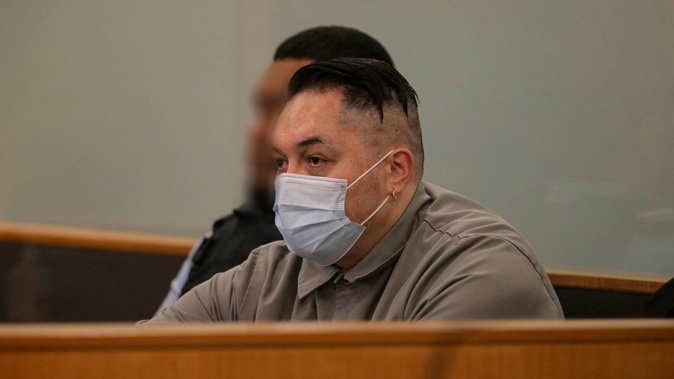
A notorious killer has apologised for his crimes at the start of an Auckland court hearing as he launches his case against Corrections.
William Dwane Bell became one of the country's most high-profile murderers when he killed three people and wounded a fourth at the Mt Wellington-Panmure RSA in December 2001.
Mary Hobson, 44, Wayne Johnson, 56, and William Absolum, 63, were killed during the robbery.
He also seriously injured Susan Couch, who worked part time doing the club's accounts.
"I am not proud of what I did. I committed a horrendous crime," Bell told the High Court at Auckland today.
"That is reprehensible in any society."
He said there were no words to atone for the suffering he had caused.
"But I am truly sorry for what I have done," he said.
/cloudfront-ap-southeast-2.images.arcpublishing.com/nzme/WTAOTR3FOYLG3H6K3GIN5EMQ7Y.jpg?width=724&height=407&mode=max)
Triple murderer William Dwane Bell pictured in court in 2002. Photo / File
Bell is representing himself in a case against Corrections in which he alleges he was wrongfully reclassified a maximum security prisoner after an accusation he planned to kidnap a prison staff member.
The claim was made by somebody who had called Crimestoppers alleging Bell was planning to take a hostage in a bid to escape.
Bell said the rule of law applies to everyone - sinners and saints and all in between.
The law does not require someone to have led a "blameless life" to qualify for protection.
"Human rights are universal."
Public officials were "not immune" from the law which was in itself what granted them power, he said.
"When the rules of the law are ignored or broken they must be held to account for their actions as much as any other person is held accountable for theirs."
Bell told the court had maintained a low-medium security classification without issue from 2016 until part way through last year.
But this was changed to maximum until investigations were completed and he lost his job in the kitchen.
Bell said there was no proof he was hatching a plan to escape.
He claims the details of individual truck licence plates were written in his notebook to keep track of what role each truck was performing.
Phillip John Smith's name and bank account number was also written down in the notebook, the court heard.
But Bell said it was a note to make sure he repaid Smith. That note was not Bell's handwriting, he said.
"That's Phillip John Smith's writing," he said.
Bell told the High Court he had no intentions of escaping prison.
"I have done twenty years in this place."
There was now light at the end of the tunnel, he said.
Take your Radio, Podcasts and Music with you








